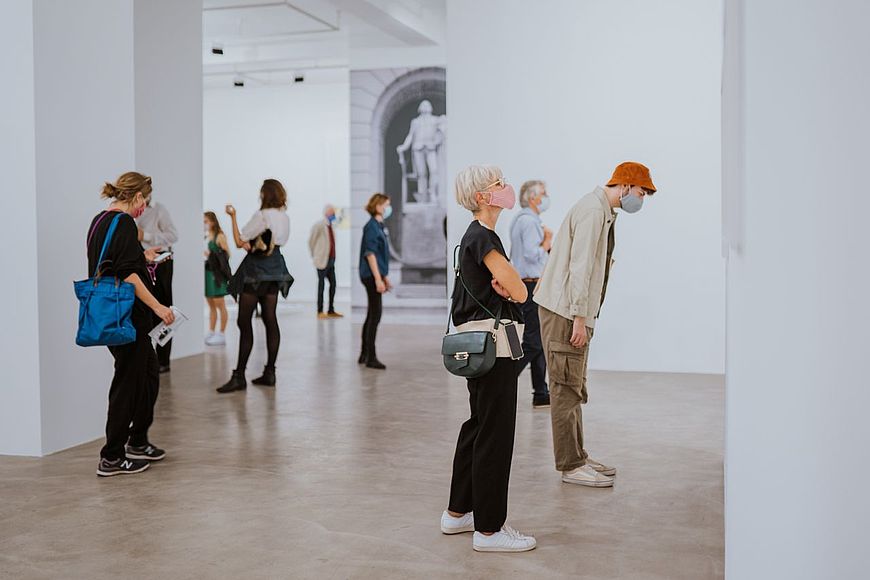The reports open up further questions of how the social life of the artworld should responsibly operate in the pandemic era

One of the first major art events to take place after the pandemic shut down the artworld, Gallery Weekend Berlin is now thought to have facilitated clusters of COVID-19 infections. An article by Catrin Lorch published in the German daily Süddeutsche Zeitung highlights the case of an (anonymous) dealer who became infected after participating in the event that took place from 11–13 September at galleries around the city, and the stigma attached to open discussions of infections. The rumours have been confirmed by the press spokesperson for the event, who said ‘a few positive cases have been confirmed’ but added that they were ‘probably related to dinner in the gallery or private events (which took place at the same time as the GW, but not within its framework)’.
After postponing its opening from April to September, Gallery Weekend Berlin decided to go ahead, hoping the spread out format of the event allowed for a safe viewing experience. The board also enforced strict safety measures, including obligatory face masks, a limit of one visitor per 10sqm and 1.5m social distancing in exhibitions. The major dinner usually organised for the staff and guests of all participating galleries was also cancelled, and gallerists were asked to downscale any social events to small groups only – advice that was reportedly not followed by the majority gallerists. Responding to the news, the organisers of Art Cologne, another major event in the German artworld, said they intend to go ahead with this year’s edition slated to open in November, but will cancel any form of social events, including vernissage, parties and award ceremonies.